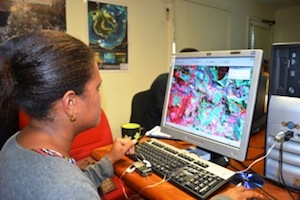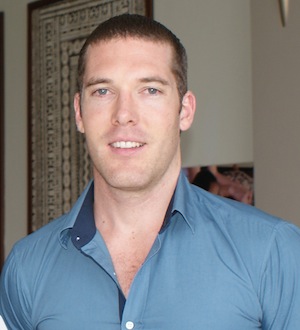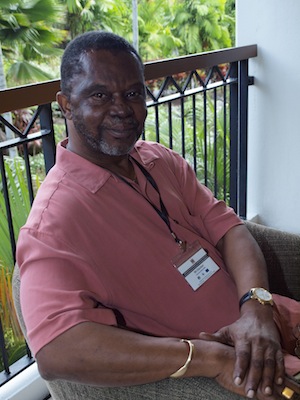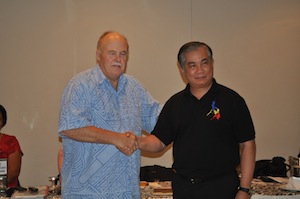2012 Science Technology and Resources Network (STAR) Conference - First Circular
Monday, 05 March 2012 07:01
administrator
The 2012 STAR Conference will be held in Noumea, New Caledonia from November 3rd to 6th, and hosted by the Secretariat of the Pacific Community (SPC) and L’Institut de Recherche pour le Développement (IRD). As in recent years, there will be a joint session with the Circum Pacific Council.
The STAR Conference will immediately precede the 2nd Meeting of the SPC Applied Geoscience and Technology Division (SOPAC Division) and the 42nd Meeting of the SPC Conference of Regional Governments and Administrations (CRGA). Note that no membership is required to attend the meeting and no conference registration fee is charged.
STAR was founded in 1984 as a vehicle to assist the international research community to provide advice to SOPAC. A strength of STAR has been its ability to mobilise science to address the national needs of Pacific island nations and provide, as an independent and voluntary body, an important scientific and advisory role. SPC has requested the continuation of this relationship following the integration of SPC and SOPAC in January 2011.
Thus, as in recent years, STAR’s Programme Monitoring and Evaluation Groups will continue to provide independent commentary on SPC/SOPAC’s work programmes, and all delegates to the STAR conference are invited to attend the SOPAC Division meeting that will follow STAR and contribute their technical expertise to the discussions.
Last Updated on Monday, 05 March 2012 07:12
Read more...
Statement by Dr. Russell Howorth at the Unveiling of the Plaque for the Palau Emergency Operation Centre
Wednesday, 22 February 2012 16:05
administrator
President of the Republic Of Palau, His Excellency Johnson Toribiong, National Authorising Officer, Darren Fritz, Distinguished Guests, Ladies & Gentlemen
On behalf of the Director-General of the Secretariat of the Pacific Community, Dr. Jimmie, Rodgers, I extend a warm welcome to all who are here to witness this occasion. This unveiling ceremony of a plaque to recognise the key stakeholders in the establishment of this National Emergency Operations Centre in Palau. The key stakeholders namely the Government and people of Palau as beneficiaries, the European Union as the development partner, and the Secretariat of the Pacific Community (more commonly referred to as the SPC) as your facilitating regional organisation.
Mr President, It gives me great pleasure to be here today to participate in this important ceremony. I am accompanied by Mr Amena Yauvoli the Manager of the SPC North Pacific Regional Office, he of course is well known to many of you.
I have had the privilege over many years to 2005 to work with Palau in my capacity as Deputy Director of SOPAC, then the Pacific Islands Applied Geoscience Commission. In March 2007, I was here as a consultant for SOPAC, and my mission was to work with the Office of the Vice President and staff of the National Emergency Management Office (NEMO), to develop the implementation plan for a Project which included the construction of a National Emergency Operations Centre. In my capacity here today as the Director of SOPAC, now the Applied Geoscience and Technology Division of the SPC, it gives me a unique pleasure to be able witness the completion of this building.
Last Updated on Wednesday, 22 February 2012 16:12
Read more...
Ground Breaking ceremony for construction of National Emergency Operation Center in the FSM
Sunday, 19 February 2012 16:39
administrator

President Manny Mori and Dr. Russell Howorth, director of the Applied Geoscience and Technology Division of the Secretariat of the Pacific Community, officiated in the ground breaking ceremony on February 17, marking the commencement of construction of the new national Emergency Operation Center at Palikir, National Capital in the Federated States of Micronesia.
The new Emergency Operation Center is to be constructed by APSCO construction at a cost of about $220,000 which will assist the FSM Office of Environment and Emergency Management (OEEM) in disaster preparedness and coordination. This project is funded by the European Union through the Disaster Risk Reduction project implemented by the Secretariat of the Pacific Community.
Last Updated on Monday, 20 February 2012 08:40
Read more...
Mapping Fiji’s Forest Cover with the help of Satellite Imagery
Wednesday, 08 February 2012 14:02
administrator
 The Secretariat of the Pacific Community (SPC) has embarked on a programme to build capacity in mapping land/forest cover in Fiji using very high resolution satellite images. The programme has three phases consisting of both theory and practical work, including ‘ground truthing’ (on-site verification of data from satellite imagery) exercises to be held later this month. The Secretariat of the Pacific Community (SPC) has embarked on a programme to build capacity in mapping land/forest cover in Fiji using very high resolution satellite images. The programme has three phases consisting of both theory and practical work, including ‘ground truthing’ (on-site verification of data from satellite imagery) exercises to be held later this month.
The training, which is jointly organised by SPC’s Land Resources Division (LRD) and its Applied Geoscience and Technology (SOPAC) Division, involves participants from the Fiji Department of Forestry and SPC.
The ground truthing exercise will be undertaken in Drawa – a model area for sustainable natural resource management located in Vanua Levu that covers about 6,400 hectares of indigenous forest.
The first phase of the training exercise focuses on enhancing and analysing satellite images of Drawa forest to classify it into different forest types and using the information to conduct forest inventory for the estimation of forest carbon stock per unit area of each forest type.
Last Updated on Wednesday, 08 February 2012 14:09
Read more...
|
Opening of Palau National Emergency Operation Centre
Wednesday, 22 February 2012 16:07
administrator

Construction has just been completed of the new Emergency Operation Centre in Palau for the Government of Palau at a cost of about US$480,000.00. Funding for the building was made available by the European Union through the Disaster Risk Reduction Project implemented by the Applied Geoscience & Technology Division (SOPAC) of the Secretariat of the Pacific Community.
The President of the Republic of Palau, His Excellency Johnson Toribiong and SOPAC Director, Dr. Russell Howorth, unveiled the plaque officially opening the building. In his opening statement Dr. Russell Howorth stated that “ the new Emergency Operation Centre will strengthen the capacity of the National Emergency Management Office prepare for and respond to natural disasters. It is important that we build community resilience to reduce the loss of human life.” The project will also equip the new building with early warning communication equipment and improve the linkage with remote communities.
Last Updated on Monday, 05 March 2012 07:09
Read more...
Speech by Dr. Russell Howorth, Ground Breaking Ceremony, National Emergency Operation Centre, FSM
Tuesday, 21 February 2012 15:56
administrator
President, National Authorising Officer, Director -Office of Environment and Emergency Management, Ladies and Gentlemen
Kasaleilia,
On behalf of the Director-General of the Secretariat of the Pacific Community, Dr Jimmie Rodgers, I extend a warm welcome to all who are here, to witness this occasion. This ground breaking ceremony will mark the commencement of construction of the new national Emergency Operation Centre. While it has taken some time to reach this stage, we are happy to see that work is about to start, and I would like to thank Andrew Yatilman and his team from the Office of Environment and Emergency Management (OEEM) for coordinating implementation of the Disaster Risk Reduction project, also known as the B-Envelope project, particularly Tony Neth, who has been directly involved. I would also like to acknowledge the contribution of the European Union who fund the B-Envelope project, where the sum of €1.5 million is allocated towards disaster management, including the construction of this building.
My affiliation with this project goes back a number of years. In March 2007, I visited Pohnpei as a consultant, to develop FSM’s Country Implementation Plan for this project. It is therefore a very special occasion, to be back here again, to bear witness and officiate in this ceremony, to implement this Plan.
Last Updated on Tuesday, 21 February 2012 16:00
Read more...
Deep Seabed Minerals Licence for Nauru
Tuesday, 14 February 2012 09:34
administrator
 With the International Seabed Authority (ISA) granting Nauru Ocean Resources Incorporation (NORI), a Nauru registered exploration company, the right to explore for deep seabed minerals in the International Seabed Area (known as “the Area”), the country becomes the first Pacific Island nation to have secured such a licence. With the International Seabed Authority (ISA) granting Nauru Ocean Resources Incorporation (NORI), a Nauru registered exploration company, the right to explore for deep seabed minerals in the International Seabed Area (known as “the Area”), the country becomes the first Pacific Island nation to have secured such a licence.
With limited seabed mineral resources inside its Exclusive Economic Zone (EEZ), the licence gives NORI the right to explore an area beneath international waters, at estimated depths of 5000 metres.
NORI is owned by two Nauru foundations; the Nauru Health and Environment Foundation and the Nauru Education and Training Foundation. As a part of the licence application process, the ISA subjected the company to a rigorous screening of its history, financials and work practises.
Last Updated on Sunday, 19 February 2012 16:50
Read more...
ISA cites good progress at seabed mineral workshop
Wednesday, 01 February 2012 11:06
administrator
 Secretary General of the International Seabed Authority, Mr Nii Allotey Odunton, said that the ISA had been “honoured and delighted,” to hold an International Workshop, in collaboration with the SPC/SOPAC Division of the Pacific Community and the Government of Fiji, on issues relating to the environmental impact assessment of deep seabed mining. Secretary General of the International Seabed Authority, Mr Nii Allotey Odunton, said that the ISA had been “honoured and delighted,” to hold an International Workshop, in collaboration with the SPC/SOPAC Division of the Pacific Community and the Government of Fiji, on issues relating to the environmental impact assessment of deep seabed mining.
Mr Odunton’s comments, part of his address to the United Nations General Assembly, December 2011, referred to good progress made at the International Workshop in identifying the issues that will need to be addressed in future environmental impact assessments, “including the establishing of a framework so that all stakeholders are aware of what is expected of them.”
During the workshop in Fiji, an integral part of the four-year, EU-funded Deep Seabed Minerals Project, Mr Odunton said that more information about the different species living on the deep seabed is needed.
Last Updated on Wednesday, 08 February 2012 14:08
Read more...
|





 The Secretariat of the Pacific Community (SPC) has embarked on a programme to build capacity in mapping land/forest cover in Fiji using very high resolution satellite images. The programme has three phases consisting of both theory and practical work, including ‘ground truthing’ (on-site verification of data from satellite imagery) exercises to be held later this month.
The Secretariat of the Pacific Community (SPC) has embarked on a programme to build capacity in mapping land/forest cover in Fiji using very high resolution satellite images. The programme has three phases consisting of both theory and practical work, including ‘ground truthing’ (on-site verification of data from satellite imagery) exercises to be held later this month.
 With the International Seabed Authority (ISA) granting Nauru Ocean Resources Incorporation (NORI), a Nauru registered exploration company, the right to explore for deep seabed minerals in the International Seabed Area (known as “the Area”), the country becomes the first Pacific Island nation to have secured such a licence.
With the International Seabed Authority (ISA) granting Nauru Ocean Resources Incorporation (NORI), a Nauru registered exploration company, the right to explore for deep seabed minerals in the International Seabed Area (known as “the Area”), the country becomes the first Pacific Island nation to have secured such a licence. Secretary General of the International Seabed Authority, Mr Nii Allotey Odunton, said that the ISA had been “honoured and delighted,” to hold an International Workshop, in collaboration with the SPC/SOPAC Division of the Pacific Community and the Government of Fiji, on issues relating to the environmental impact assessment of deep seabed mining.
Secretary General of the International Seabed Authority, Mr Nii Allotey Odunton, said that the ISA had been “honoured and delighted,” to hold an International Workshop, in collaboration with the SPC/SOPAC Division of the Pacific Community and the Government of Fiji, on issues relating to the environmental impact assessment of deep seabed mining.








